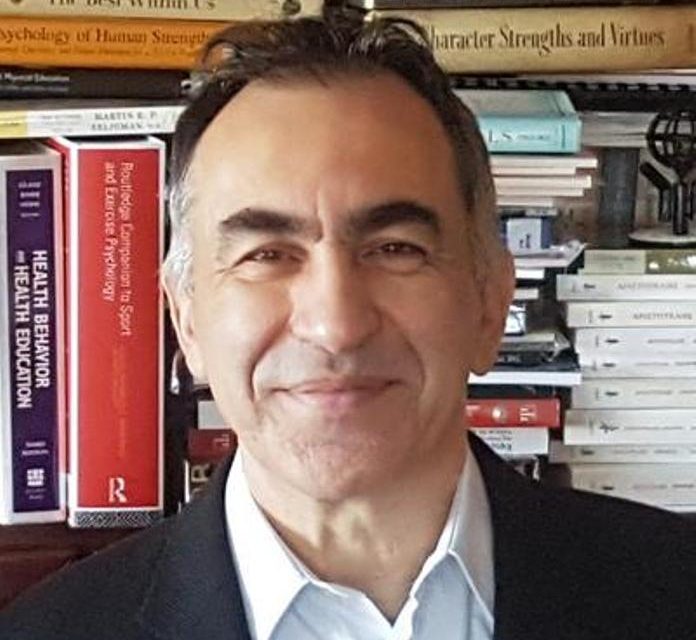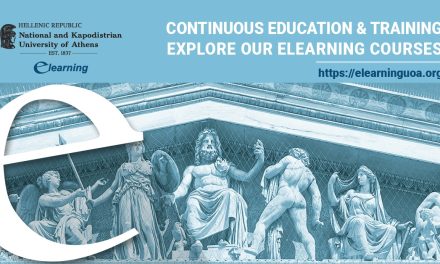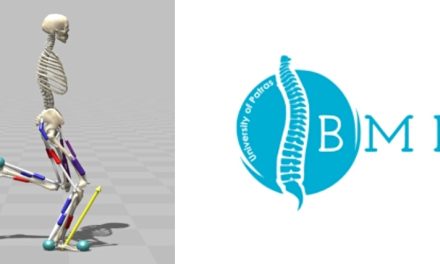The online portal Study in Greece is campaigning for the international visibility of Greek Universities and the comparative education advantages of our country. In particular, the campaign focuses on the foreign language study programs that Greek Universities offer to Greek and international students. The initiative is supported by the General Secretariat of Higher Education of the Ministry of Education and Religious Affairs and the General Secretariat for Greeks Abroad and Public Diplomacy of the Ministry for Foreign Affairs. In this context, a number of educational programs and actions are presented in detail on a regular basis, such as undergraduate and postgraduate programs, summer schools etc, to inform international students about the many foreign language options offered by Greek Universities. In this context, Study in Greece interviewed Professor Athanasios Papaioannou, founder of the European Master in Sport and Exercise Psychology on the program’s aim and directions and the professional opportunities it offers to foreign students.
Athanasios Papaioannou is Professor of Sport Psychology and the current Dean of the School of Physical Education and Sport Sciences of the University of Thessaly. He is the founder of the Master’s program in Psychology of Exercise and he has been the coordinator for the University of Thessaly of the Erasmus Mundus program “European Master’s in Sport and Exercise Psychology”. He holds a Diploma in Physical Education and Sport Science from the Aristotle University of Thessaloniki, an MPhil in Psychology of Physical Activity from the University of Manchester and a PhD in Psychology in Education and Sport from the University of Manchester. From 2001 until 2017 he was Managing Council member of the International Society of Sport Psychology (ISSP), Vice-president of the ISSP (2013-2017) and the Treasurer (2005-2009) of this organization. He was also the Director of the 10th World Congress of Sport Psychology, Skiathos, June 2001. He is the past president of the Greek Society of Sport Psychology and past Vice-president of the Hellenic Academy of Physical Education.
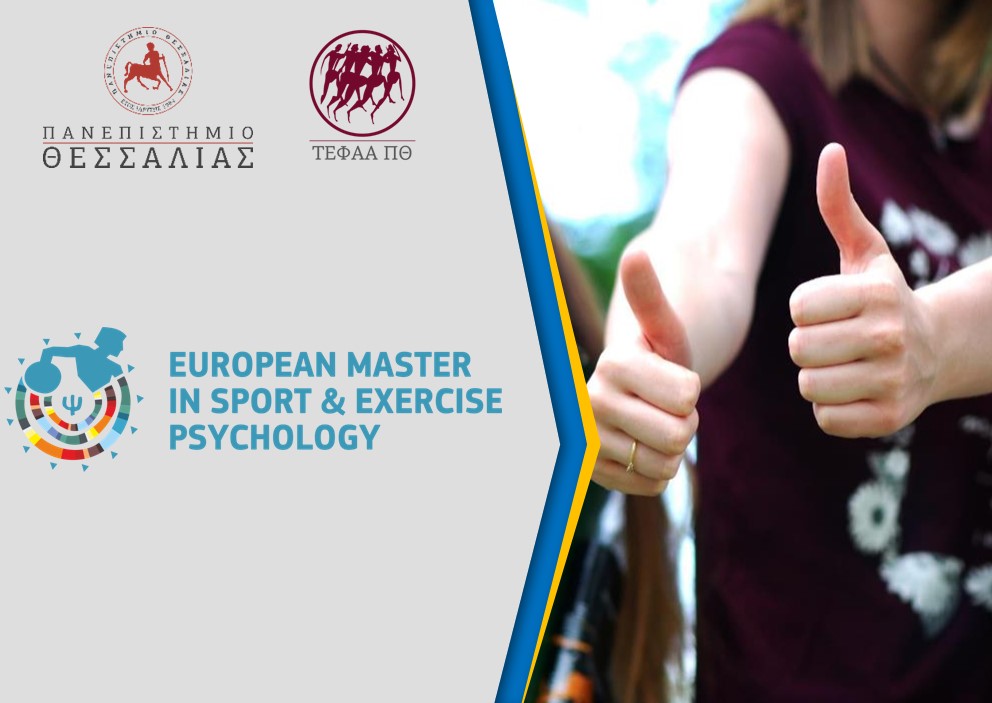 Please tell us in a few words about the European Master in Sport and Exercise Psychology aims and directions.
Please tell us in a few words about the European Master in Sport and Exercise Psychology aims and directions.
The European Master in Sport and Exercise Psychology (EMSEP) aims to provide master’s level expertise in sport and exercise psychology to international students with a background in psychology and sports-related fields.
The EMSEP
- Is one of the few Master’s programs in Europe on Sport & Exercise Psychology
- It emphasizes both research and practice (practicum)
- It offers unique cross-cultural experiences, which are critical to professionals who have to work with athletes from different cultures (modern sport)
The program is connected with a large network of European universities with expertise in Sport and Exercise Psychology. Professors from this network are invited EMSEP lecturers, particularly during the Intensive Course(s) of the EMSEP (6-14 days), which is organized at least once every year.
The EMSEP began as a prominent Erasmus-Mundus master’s program, offering double degrees with the universities of Leipzig, Jyvaskyla and Lund until 2017. Currently, the EMSEP provides a double degree with the University of Leipzig (Germany) and from 2021 onwards a double degree once more with the University of Jyvaskyla (Finland). Students from these universities take courses from both (or all) universities (students registered with a home university take a minimum of 30 ECTS from a host university).
Professors are internationally acknowledged researchers, elected MC members of International & European Associations of Sport Psychology (ISSP, FEPSAC), Editors or Editorial board members of international journals (e.g., IJSEP, PSE), books, etc., have experience in consultancy in sport, exercise, health education.
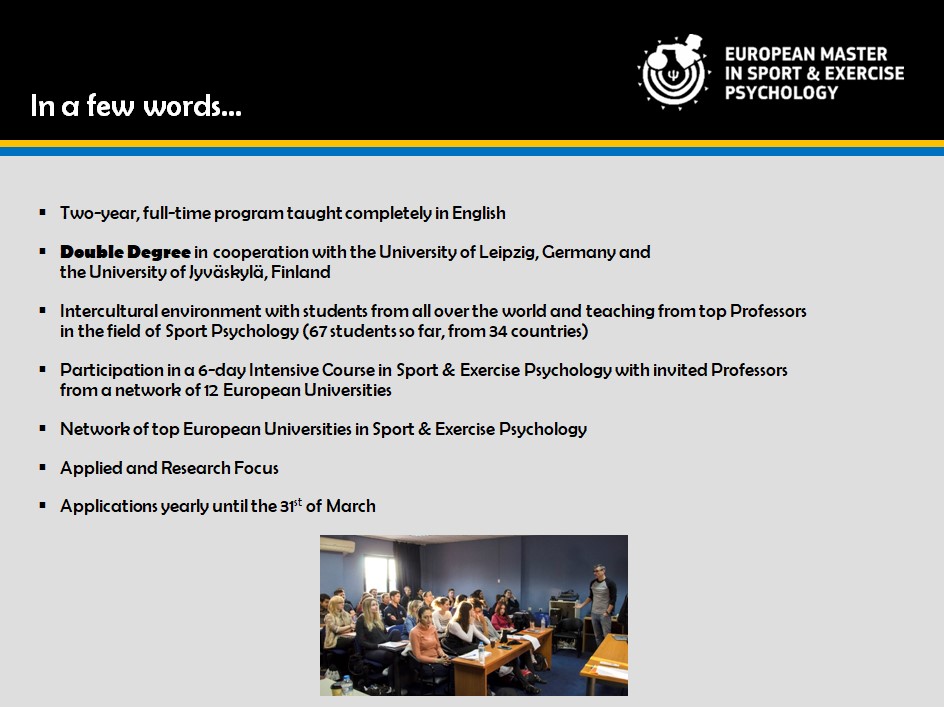 Given the fact that your program is taught entirely in English, what are the educational and professional opportunities offered to foreign students?
Given the fact that your program is taught entirely in English, what are the educational and professional opportunities offered to foreign students?
The program offers an Intercultural educational environment. It integrates knowledge and skills developed through taught courses and seminars from high-level experts in the field, rich practical experiences from practicum with athletes/clients, and opportunities for high-level research.
It offers better working conditions for graduates in Europe thanks to the double degree and intercultural education with international fellow students, teachers, athletes/clients. About 40% go on to pursue a doctorate, many with scholarships from universities in the USA, Australia, the UK, Canada, Germany, etc.
Typically, EMSEP graduates work as:
- Specialists/consultants for athletes/exercise participants/ individuals with obesity and clinical problems who need exercise for health reasons etc.
- Leaders in the administration of programs promoting physical activity, health and quality of life
- Specialists in education in the area of psychology of physical education and school health education
- Or continue their career as researchers (e.g., leading to a PhD).
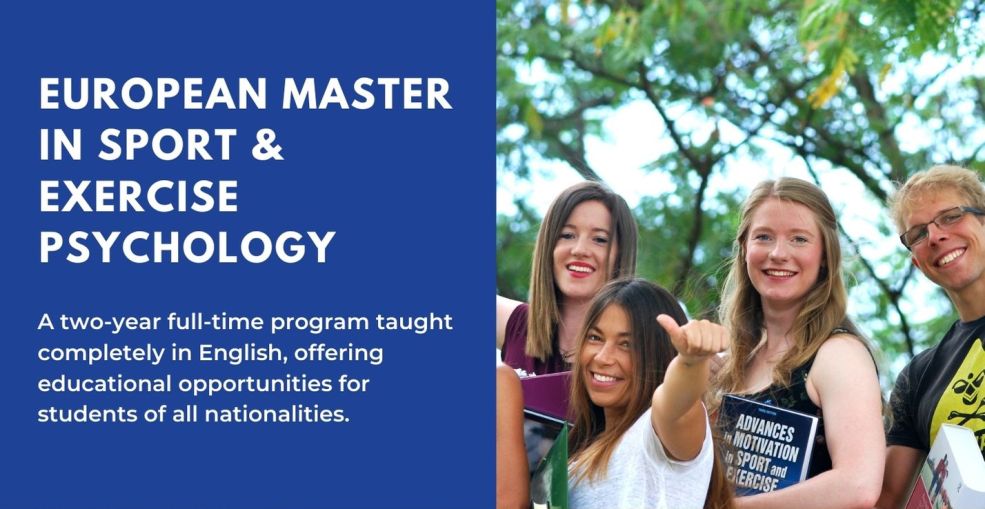 By viewing your website to learn about the program, we see many international students discussing their experience of attending the master’s degree, so we assume that the output so far has been satisfactory, correct?
By viewing your website to learn about the program, we see many international students discussing their experience of attending the master’s degree, so we assume that the output so far has been satisfactory, correct?
Yes, it has; in our evaluations, more than 90% of our graduates would recommend the program to others.
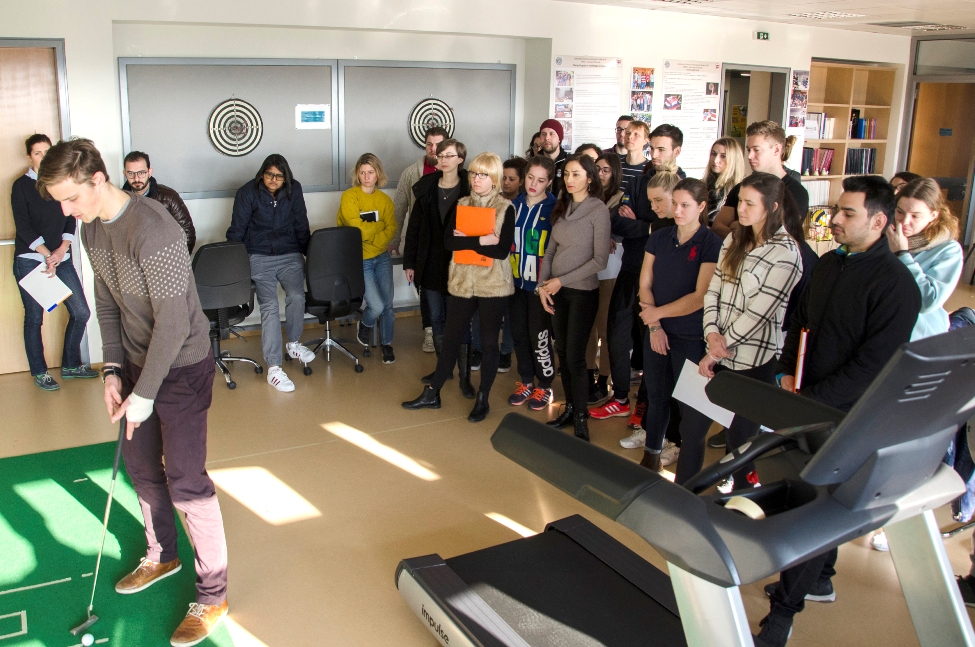 What does Trikala have to offer as an international study destination? Could we argue that the city has the infrastructure needed to become an international academic destination?
What does Trikala have to offer as an international study destination? Could we argue that the city has the infrastructure needed to become an international academic destination?
It is a nice and vibrant town of 65.000 inhabitants and about 1500 university students, very good but not expensive food, many cafes and bars, with some attractive sites in town and the surrounding areas (e.g., Meteora) in particular. Currently, the town can easily accommodate small numbers of international students, mostly at the master’s level. The town needs student halls of residence to attract large numbers of international students, something that the university plans to develop.
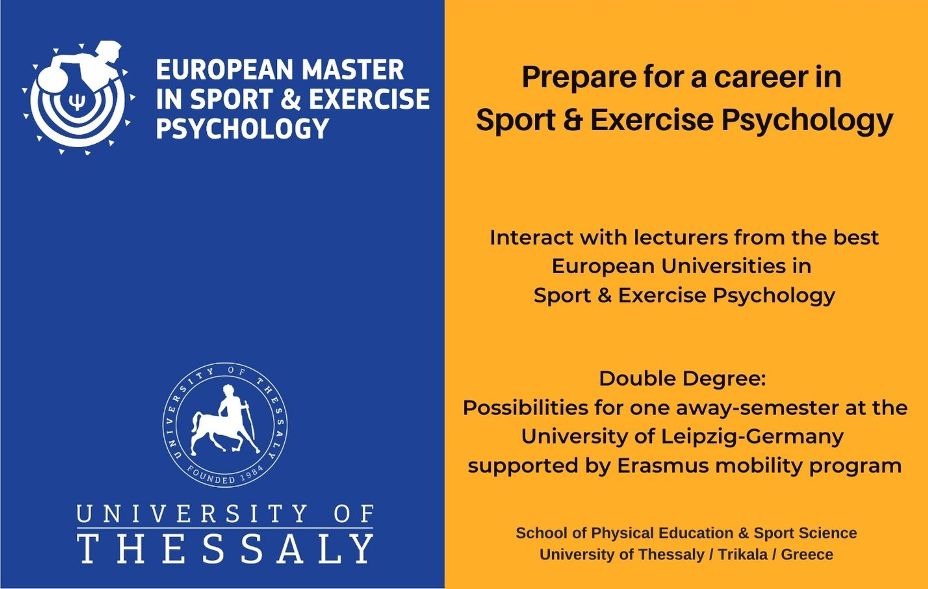 Bearing in mind that Greece is world-renowned for the Olympic spirit and values, do you consider that this classical aspect is something that attracts contemporary international students?
Bearing in mind that Greece is world-renowned for the Olympic spirit and values, do you consider that this classical aspect is something that attracts contemporary international students?
It depends on the background of the international students; this would apply to some of them, but the classical aspect is not the most important incentive for the majority of students. However, we emphasize Olympic values and Olympic education in our program, and we include trips to Delphi, Olympia, etc.
Greece is known as a pleasant country to visit and this is an advantage. In the end, however, what determines the decision of international students to register with the EMSEP and spend two of their most important years of life in Greece, is the quality of the program and the international recognition and reputation it has gained in the past 10 years.
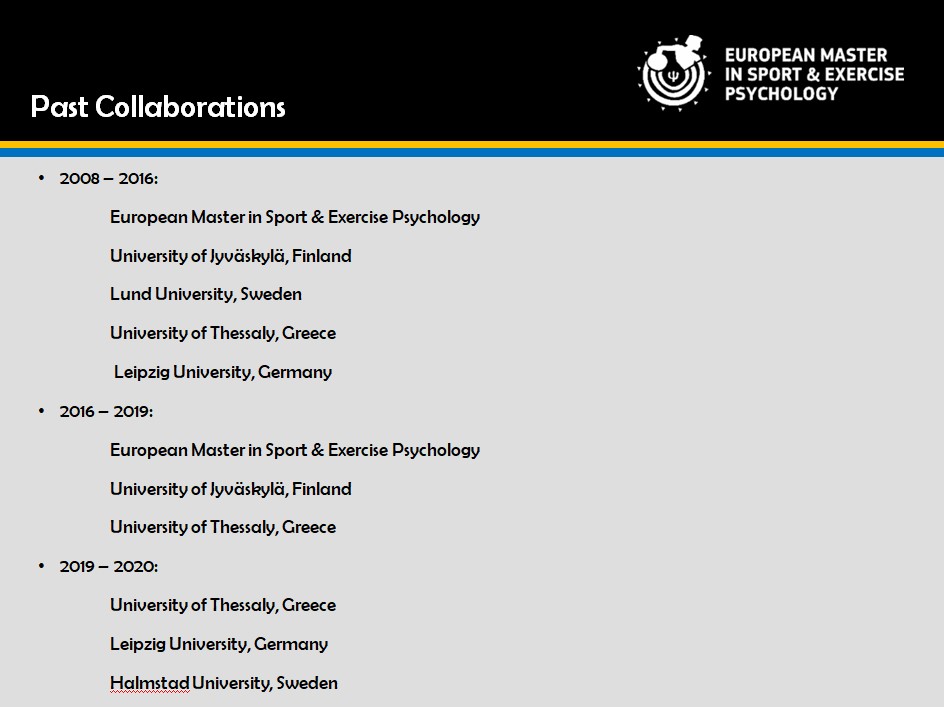 Tell us a few things about the University of Thessaly – its history, its departments, its facilities, and its tradition in scientific research.
Tell us a few things about the University of Thessaly – its history, its departments, its facilities, and its tradition in scientific research.
The University of Thessaly is a new university, established in 1984, which has grown rapidly and is now the third-largest in Greece, with over 30.000 students and 35 academic departments in five towns in the region of Thessaly-Central Greece. The School of Physical Education, Sport Science and Dietetics is located in Trikala, with two departments; (1) Physical Education and Sport Science and (2) Nutrition and Dietetics. Despite its relatively small size (26 faculty members), the Department of Physical Education and Sport Science is ranked among the best 100-150 internationally in the Shanghai list of Sport Science departments. The sport and exercise psychology lab is considered one of the best in Europe.
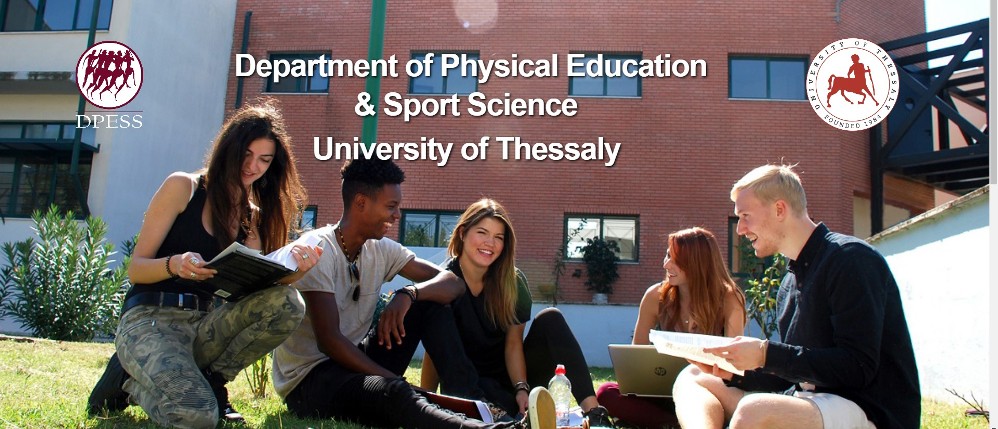 In what way does this master’s program contribute to the cultural and economic development of the local community?
In what way does this master’s program contribute to the cultural and economic development of the local community?
Until now, more than 1.5 million Euros have been imported into the local economy by international students to cover their living expenses and tuition fees. Several thousand Euros have been also added to the local economy by international participants/students and professors in International Congresses/Intensive Courses taking part in Trikala almost every year. International friends and families have also travelled to Greece to visit the EMSEP students in Trikala. International students interact with Greek students and local people, thus providing important cross-cultural experiences.
For more info please visit the program’s site: Program: http://postgrad.pe.uth.gr/pse/index.php/en/
F.K.

